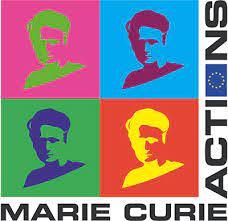
ALL WELCOME
Universities of California, Berkeley and Ca' Foscari, Venice. Visiting Researcher, MIASU
Memory and Subjectivity in Russia’s Islamic Pompeii
At this Research Seminar, I wish to present and discuss my still-in-progress, Le-Goffian examination of the archaeological complex of Shahri Bolghar in Tatarstan, Russia. Bolghar is one of the most (if not the most) iconic Islamic heritage sites in the Russian Federation. Over the past decade or so, the site has undergone a process of intense restyling, from the restoration of its ancient mausoleums and minarets to the addition of new buildings and infrastructure. This operation has converted Bolghar into a powerful mnemo-political apparatus capable of interpellating – in the double sense of addressing and bringing into being – specific types of civic subjectivity.
Multiple mnemo-political narratives and strategies appear to converge at Shahri Bolghar. At least four sets of monuments can be discerned within the assemblage: the first crystallises orally-transmitted legends about the site, dating back to the pre-revolutionary era. The second charts the dynastic transmission of state power across the centuries, thereby offering a genealogical narrative that reinforces modern notions of Tatar ethno-national uniqueness and sovereignty. A third presents local history as part of a broader historical continuum through the humanist lens of ‘world history’ as well as a Romantic-nationalist notion of Eurasia. Lastly, a fourth set emphasise scriptural Islam and thus links the site to the global Islamic revival.
Building on Jacques Le Goff’s approach to the study of memory, this paper proposes to unpack Shahri Bolghar by identifying 1) the narratives about history and identity that overlap at the site, 2) the fourfold mnemonic ‘styles’ that individual features of the site rely upon (oral, genealogical, historical, and religious), and 3) the ‘types’ of civic-political subjectivity that each mnemonic style presupposes and seeks to cultivate. It will be argued that such multiplicity indicates, on the one hand, the ecumenic scope of the site, but also, on the other hand, the existence of fundamental and as yet unresolved disagreements as to what it means to be Tatar, Muslim, and Russian, in the post-Soviet period. Since this project is still at an early stage of development, feedback and criticism will be most welcome!
In-person seminar taking place at the Mond seminar room (limited number of attendees) and live streamed via zoom – please contact MIASU Admin should you wish to attend and for further information.

